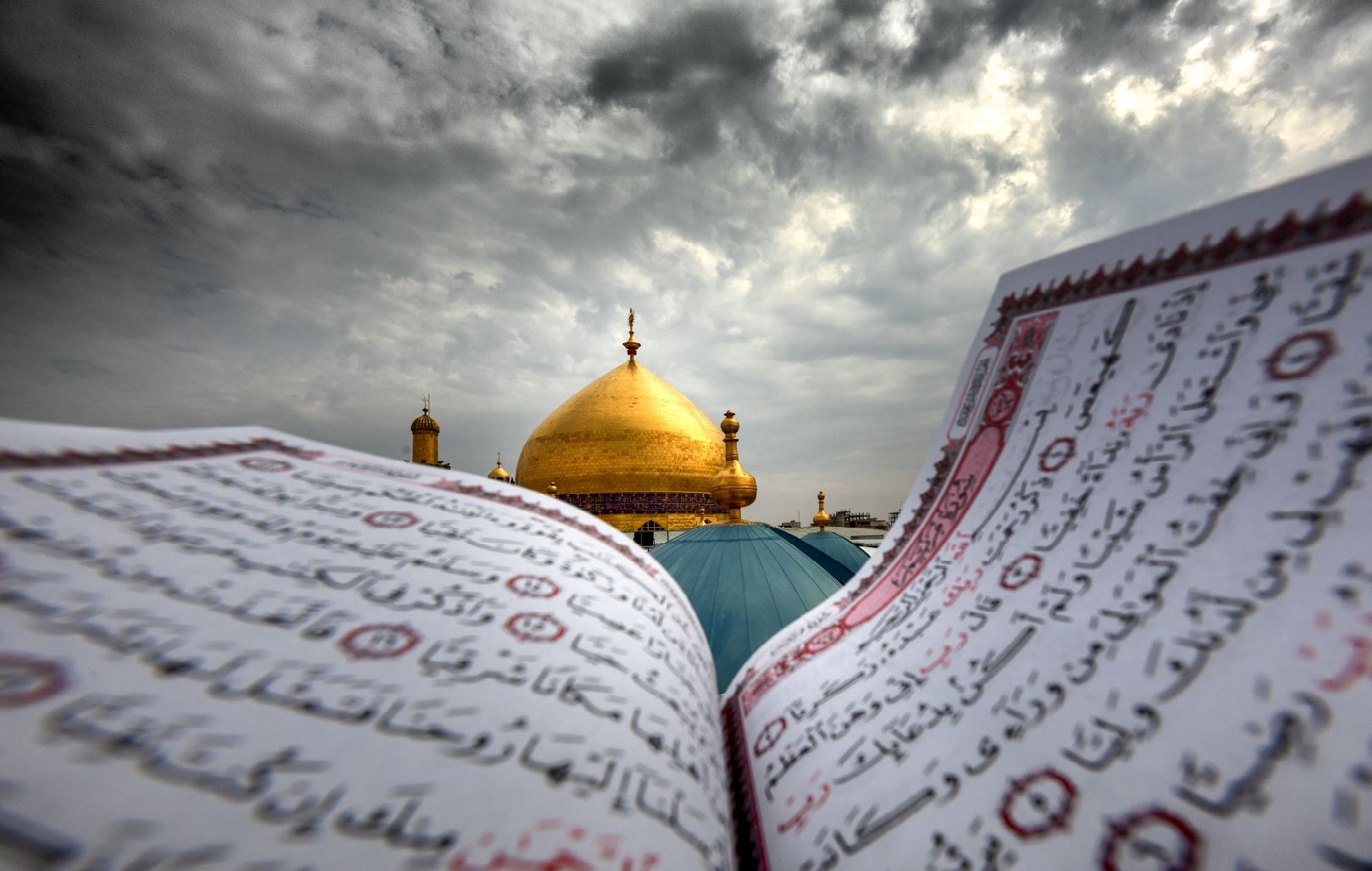It can be understood from the Ahadith that the A’immah (a.s.) took this day as one of celebration andused to hold special programs to celebrate this event. It has been narrated from Fayyadh ibn Muhammad at-Tusi that, “I was in the presence of the 8th Imam on the day of Ghadir (18th of Dhul Hijjah).
I saw a particular group of people serving the Imam and the Imam was (intentionally) keeping them in his house until the time of sunset came so that he may give them food to eat (and thus enable them to break their fast). The Imam ordered that food, new clothes, shoes, rings, and other gifts be sent for their families. In the house, I noticed that the state of all of those present was something completely different than normal, and it was from those people that I learned the greatness and magnitude of this day.” (Biharul Anwar, volume 97, page 112, hadith 8)
In another Hadith it has been mentioned that one day during the days of the “open caliphate” of Imam ’Ali (a.s.), the day of Jumu’ah and ’Eid Ghadir fell together. On this day, the Imam (a.s.) delivered a long speech and said, “This gathering shall soon come to an end and all of you will go back to your homes and families – may Allah shower His mercy upon all of you.
On this day, you should be kind to your families and do good deeds to your brothers. You should thank Allah for the blessings, which He has granted you. You must also be sure to unite with one another so that through this, Allah may assist you.
Do good to others so that Allah makes your friendship firm and immovable. From the blessings which Allah has given you, give gifts to one another. On this day, Allah will give rewards (to you) in multiple folds compared to other days of celebration (’Eid). This form of reward cannot be attained except through this day (Ghadir). Doing good to others and giving away much wealth to others increases the life span. Being a host to others results in the mercy and love of Allah descending upon you.
On this day, as much as you are able to, give your brothers and family a portion of the wealth, which Allah has granted you. Always be smiling and in a happy mood when you meet one another; and be sure to thank Allah for the blessings which He has showered upon you. Go towards those people whose hope may lie in you and do good to them. In regards to your food and drink (on this day), ensure that between you and those who are under your care and supervision, there is equality. This equality and equity must be displayed to the extent of your ability (and you should know that) the reward of giving one dirham of charity on this day is equivalent to giving 100,000 dirhams of charity (on any other day) and the Divine bounty of this is in Allah’s hands alone.
Allah has also made it highly recommended to fast on this day and has promised a great reward for one who observes it. If a person was to look after the needs and necessities of his brothers, even before his own wishes and desires (were expressed to Allah), and if one was to look after their requests in the best possible way, then one would be granted such a reward that it would be equivalent to fasting the entire day and spending the entire night in worship until the morning hours.
A person who feeds another fasting person on this day will be equal to that person who went person by person and fed all of the fasting people (with his own hands). You must convey all that you have just heard to those who are not here. The strong and able people must go out in search of the weak people; the powerful must go in search of the oppressed, as these are all things which the Prophet (s) has commanded me to do.”
Imam ’Ali (a.s.) then read the Khutbah for Jumu’ah and performed the Salat al-Jumu’ah (since there is no special Salat for this ’Eid). He then went with his children and Shi’a to the house of Imam Husain (a.s.), where food was ready, and he distributed gifts to the Shi’a – both the needy and the free from need - who had accompanied him, and then instructed them to go home to their families."
Source:
40 Ahadith On Ghadir
By Mahmud Sharifi
[Vol. 1, p. 3-4].

